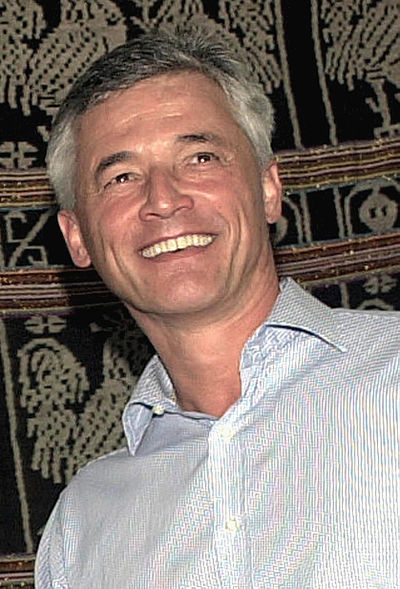APRIL 15, 2021 – Recently, I watched the Netflix documentary, Sérgio, about Sérgio Vieira de Mello, Brazilian UN diplomat extraordinaire. The film is as inspirational as it is heart-breaking. A UN staff member remarks how unusual it was by organizational convention that such a high-ranking official would be known exclusively by his first name. That label, however, reflected Sérgio’s charisma and easy rapport with everyone whom he encountered, from the poorest of the poor to the mightiest of the mighty.
Born in Rio de Janeiro in 1948, Sérgio’s upbringing took him to many places abroad. His father was a diplomat with a succession of postings in South America and Europe, and by this exposure, Sérgio developed an expansive view of the world. He attended Sorbonne in the late sixties, where he flirted with Communism and participated actively in Paris street demonstrations. Like so many youthful radicals, however, he calmed down with age and maturity.
After graduation, he moved to Geneva to live with a friend and applied for a job at the UN, where he’d spend the rest of his career.
In time Sérgio served in humanitarian/refugee missions (Bangladesh, Sudan, Cyprus, Mozambique), and in these settings his talents and his charismatic humanity blossomed. Eventually, his intellectual gifts and organizational ability led to leadership roles in UN missions to Cambodia, Lebanon, Kosovo, Fiji, East Timor, and finally—tragically—Iraq.
Sergio would do anything—including plunging into the heart of danger and meeting, nudging, arm-twisting some really bad characters—to bring relief to people who suffered the worst of humanity’s inhumanity. At the core of his efforts was his unwavering mission to help those whose lives had been destroyed by unconscionable conflict. He was as much a man of action—the documentary shows how he ventured deep into inhospitable lands infested with landmines to meet with the Khmer Rouge—as he was a man of reflection (he was a PhD in philosophy). He was as fluent poly-linguistically as he was in the needs and emotions of refugees along dusty, dangerous roads in no-man lands.
One of Sérgio’s greatest successes—the peaceful independence of East Timor in May 2002—proved to be his death sentence. When the largely Christian half-island nation (colonized by Portuguese) separated from Muslim Indonesia, Osama Bin Laden targeted Sérgio as an infidel. After the U.S. intervention in Iraq went south (soon after proclamation of “Mission Accomplished” in March 2003), UN General Secretary Kofi Anan pleaded with the reluctant miracle worker Sérgio to lead the UN mission in Baghdad. On August 19, 2003, the Canal Hotel, which housed the UN offices, was blown to bits. Al Qaeda claimed responsibility. Sérgio was among the victims. With his last breaths, as medics attempted to rescue him, he asked about the safety and well-being of UN staff, and added, “Don’t pull out!”—meaning don’t pull the UN mission from Iraq.
As President Biden announces the end of the endless war in Afghanistan, Sérgio reminds us that the war in Iraq cost humanity one of its finest advocates.
(Remember to subscribe to this blog and receive notifications of new posts by email.)
© 2021 by Eric Nilsson
